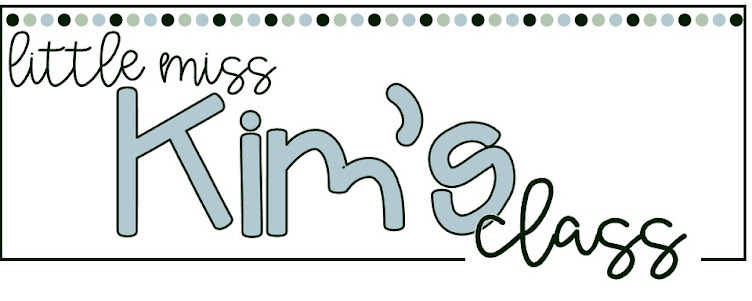 Coaching and managing paraprofessionals is one of the hardest and most rewarding parts of being a special education teacher! I have been blessed with some amazing paras over my years in the classroom, but I have also had to have my fair share of difficult conversations with paraprofessionals.
Coaching and managing paraprofessionals is one of the hardest and most rewarding parts of being a special education teacher! I have been blessed with some amazing paras over my years in the classroom, but I have also had to have my fair share of difficult conversations with paraprofessionals.It's inevitable that you're going to have to have difficult conversations with paraprofessionals at some point in your career. Although these conversations will likely be uncomfortable, it doesn't have to be something you dread or that causes a huge amount of stress! Just like with any relationship, having a positive relationship and good communication with paras makes having difficult conversations easier. If you need a few simple ideas for building positive relationships with paras, check out this post, this post, and this post.
-Always start with a few positives and things the paraprofessional is doing well!
It's so important to remind the para what she/ he is doing well. This is especially important if you're working with a paraprofessional who is new to working in the classroom, because being a paraprofessional is HARD and can be a scary job to learn how to do. Just like students (and you!) want to be reinforced for what you're doing well, paras likely want to hear what they're doing well.
A few examples of positive things you can tell paras:
"I love how you've built a great relationship with ___."
"I really appreciate how you've jumped right in with implementing ___'s behavior plan."
"You're doing a wonderful job at running centers/ reading groups!"
"Thanks for always being willing to lend an extra hand in specials."
-Be concrete with your concerns and areas for growth.
Now this is the hard part of the conversation... When it comes to discussing your concerns/ the areas for growth for the para, be concrete about your concerns! It's a good idea to give specific examples of the concerns/ issues you've seen and then to give specific examples of how the para can improve the issue. It also might be helpful to clearly explain WHY the behavior is an issue/ concern of yours. For example, you could explain that when a para is on her phone during recess or lunch, it's a safety concern because she isn't actively watching the students.
Below are common concerns/ issues in classrooms with paraprofessionals and possible ways to word the conversation:
Cell phone use:
"I've noticed you're spending a lot of time on your cellphone. I know we all have families and have to check our phones periodically, however, it's really important that we focus all of our attention on the students during the day to ensure they're safe and learning. Please limit checking your phone to breaks. If something is going on that requires you to need to check your phone more than usual, please just let me know."
Excessive talking/ noise volume control:
"It's really important that we keep side/ personal conversations to a minimum throughout the day when the students are present. I often struggle to focus on teaching when staff are excessively talking, so it probably makes it tough for our students to focus too."
When a para doesn't agree with an intervention/ plan you want to put in place:
"I understand you don't agree with implementing ___ intervention. However, I want to implement it because (insert data or research). Let's try the intervention for a few weeks. We will come together in a few weeks and if it isn't working, then we can tweak the plan/ intervention."
-Finish by asking how you can better support the paraprofessional.
It's important to remember that YOU are there to SUPPORT your paras. No teacher is perfect, so it's likely that there is something you can do differently to help your paras meet the classroom expectations/ goals. I've had paras come up with great ideas about how I can better support them when it comes to concerns (like more lists/ zoning plans, verbal reminders/ cues), so use the conversation as a way for you to grow professionally and better support your staff.
-Follow up within a day or two.
Make sure you follow up with the para within a day or two of having a difficult conversation. Remind that para that if she comes up with something that you can do differently to support her, that she can come to you, leave you a note or send you an email! Ask her again if she thought of anything you can do to do better support her or if she have any questions/ concerns. It's normal for people to not be able to think of ideas like this during initial conversations, and following up will show the para that you care enough to give the para time to think about it and then follow up.
After following up, make sure you continue to give them feedback on how they're doing! If the concern continues have one more conversation with the para before having a more formal meeting with administration and the para.
Do you have any tips for having difficult conversations with paras?




